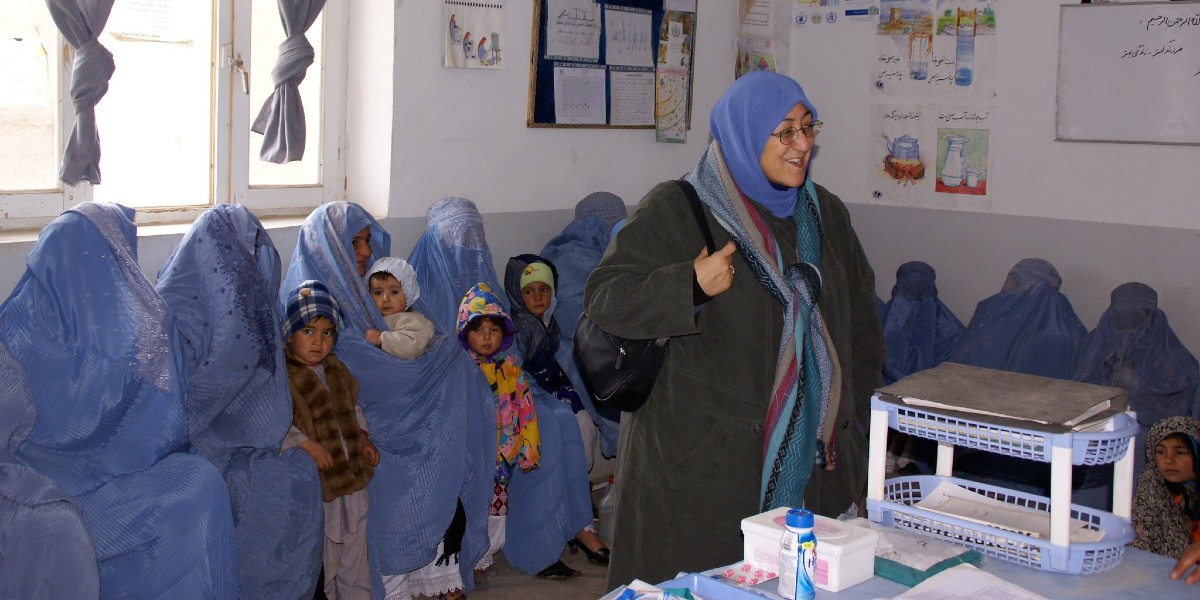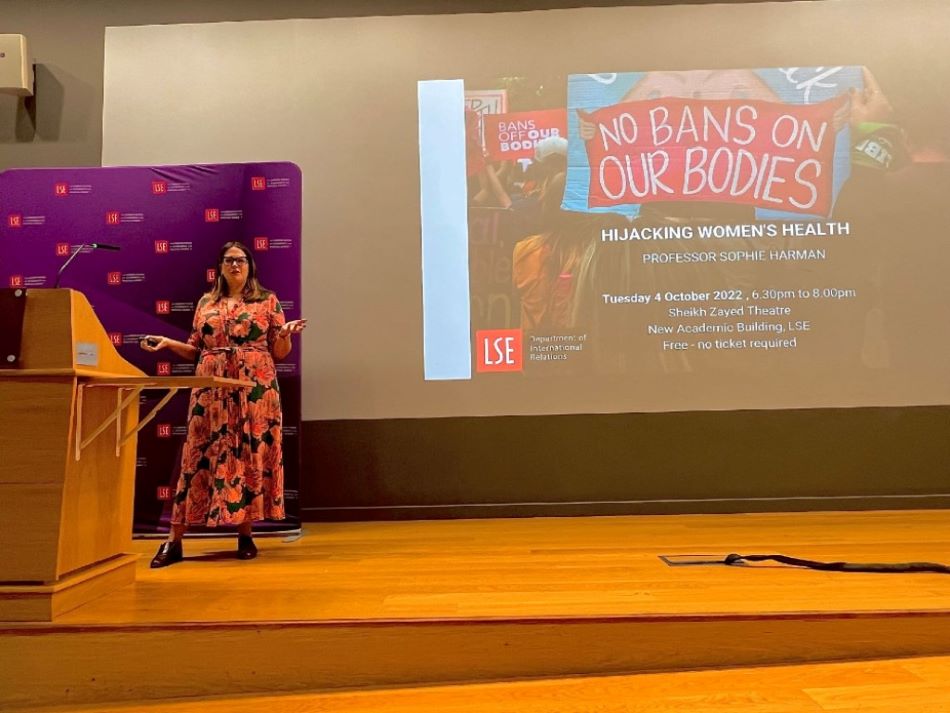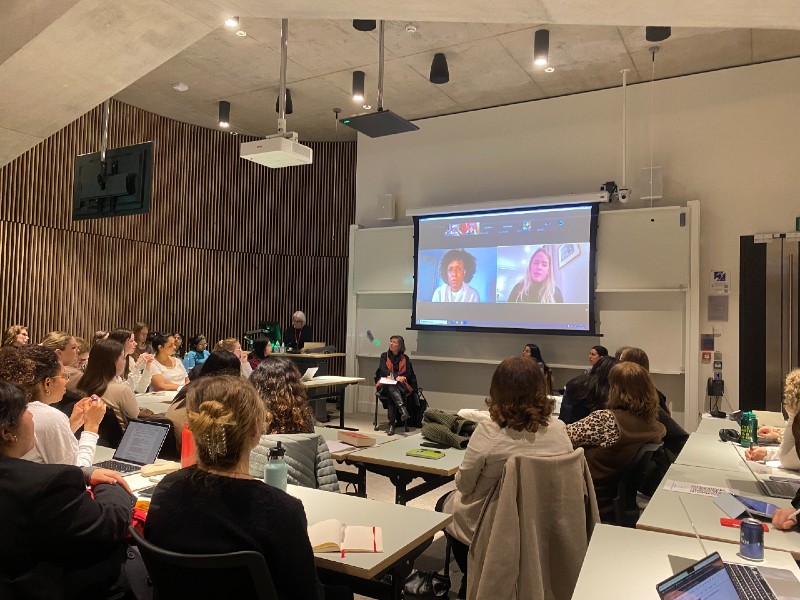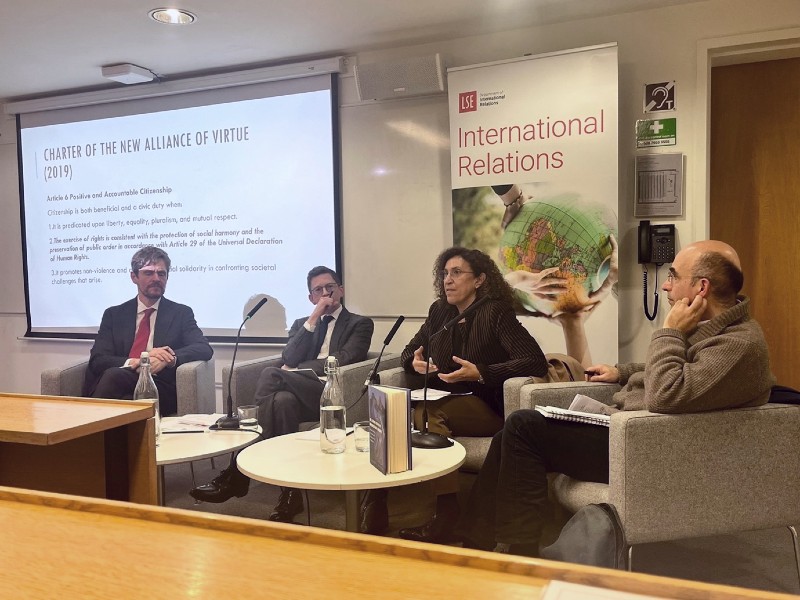In this opinion post, we hear from Zeynep Egin, an MSc International Relations student at LSE, who argues that immediate measures should be taken to ensure that all Afghan citizens, including women and girls, have equal access to healthcare, and that failure to take prompt action will lead to the continued suffering of millions and perpetuate the vicious cycle of poverty and oppression in Afghanistan.

It has been almost three years since the Taliban troops seized control of Afghanistan’s capital, Kabul. In 2021, following the withdrawal of US and coalition forces, the Taliban officially claimed its victory after the collapse of the Afghan government, and Afghan President Ashraf Ghani was reported fleeing the country on 15 August. The fall of the government and the rapid takeover by the Taliban have caused widespread concern and uncertainty about the future of Afghanistan and its people. Unsurprisingly many individuals have left and are still trying to leave their home country to seek better opportunities, considering the country’s current political and social atmosphere.
Since the Taliban takeover, Afghanistan has been experiencing a period of unparalleled turmoil. According to a recent report from the United Nations, the country is facing an unprecedented crisis, with over 90% of the population living in poverty. In 2024, an estimated 23.7 million people will need humanitarian assistance. The statistics paint a bleak picture: 69% of the population do not have enough food, while 67% have difficulty accessing clean water. Moreover, the healthcare system is on the verge of collapse.
Despite the efforts of humanitarian organisations, the decrease in funding has forced the organisations to focus more on providing immediate relief, leaving the long-term needs of the healthcare system unmet.
Over the past 20 years, Afghanistan has relied heavily on foreign aid to provide essential services such as healthcare, while the government’s contribution has been minimal. Since the Taliban’s takeover and the subsequent withdrawal of aid, the healthcare system has become vulnerable, worsening the existing conditions and paving the way for shortages of medical staff and supplies. Despite the efforts of humanitarian organisations, the decrease in funding has forced the organisations to focus more on providing immediate relief, leaving the long-term needs of the healthcare system unmet. Moreover, the economic collapse has left hundreds of thousands of Afghans unemployed and pushed many into extreme poverty. Consequently, individuals are unable to afford medical expenses, leading to heightened health risks, especially among women and girls.
Women are the ones who are bearing the brunt of the new changes under the Taliban regime.
Women and Girls
Women are the ones who are bearing the brunt of the new changes under the Taliban regime. Women have been swiftly removed from public spaces, and girls aged 11 and above have been barred from attending schools, while university education has also been prohibited. These restrictions extend far beyond education and encompass many basic rights. Women are not allowed to leave their homes without a male guardian and are subjected to questioning by the Taliban. As a result, they are facing significant challenges in maintaining their livelihoods as they are unable to work and support themselves financially.
The Taliban’s strict rules regarding women’s education and employment are causing major problems in the healthcare sector as well. These regulations violate women’s rights and hinder humanitarian aid efforts. By prohibiting women from working in various fields, including civil service and NGOs, the Taliban are not only depriving them of income but also obstructing access to essential healthcare services. Furthermore, the Taliban’s ban on girls’ education hinders the future of female healthcare workers, perpetuating the shortage of healthcare accessibility. Restrictions on female healthcare workers, such as mandatory accompaniment by a male guardian, further impede healthcare delivery.
The Taliban’s ban on girls’ education hinders the future of female healthcare workers, perpetuating the shortage of healthcare accessibility. Restrictions on female healthcare workers, such as mandatory accompaniment by a male guardian, further impede healthcare delivery.
“Women are affected from every side, but their health should not be affected. Their health should not be politicised,” stated Dr Najmussama Shefajo, the head of the Afghan Society of Obstetricians and Gynecologists and a gynaecologist at her private clinic in Kabul. “Unfortunately, the health system is very politicised here in Afghanistan.” The lack of access to essential healthcare services has led to heartbreaking situations where pregnant mothers have lost their lives while delivering due to a lack of specialists to assist them.
Conclusion
The severe humanitarian crisis in Afghanistan is a result of a combination of factors, such as the economic breakdown and the oppressive policies of the Taliban. The withdrawal of international aid, coupled with the Taliban’s neglect of public health, has further intensified the crisis, thereby extending the threat to the welfare and rights of the Afghan people.
Two Afghan women once said, “Your fight is beautiful because you are a woman. Our home is being ruined, but you will own it one day.” They believed that one day, women like her would rebuild and take ownership of it. Their words serve as a reminder of the resilience and strength of women, even in the face of adversity. Immediate measures should be taken to ensure that all Afghan citizens, including women and girls, have equal access to healthcare and safeguard their rights. Failure to take prompt action will lead to the continued suffering of millions and perpetuate the vicious cycle of poverty and oppression in Afghanistan.
Immediate measures should be taken to ensure that all Afghan citizens, including women and girls, have equal access to healthcare and safeguard their rights.
Banner photo from Direct Relief Flickr CC by-NC-ND 2.0
This article represents the views of the author, and not the position of the Department of International Relations, nor of the London School of Economics.




